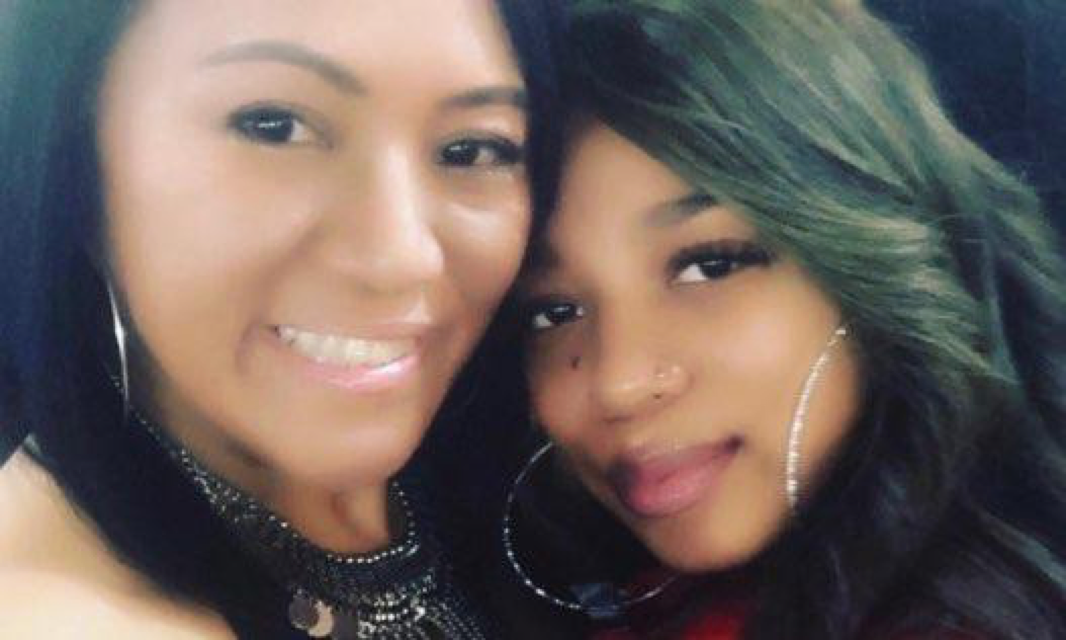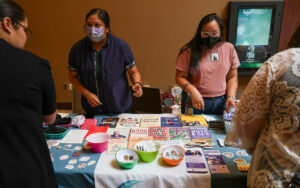As homicides surged across the US last year, the number of Black females killed increased sharply as well
A least four Black women and girls were murdered perday in the United States in 2020, according to statistics released by the FBI last week, a sharp increase compared with the year before.
The FBI recorded at least 405 additional murders of Black women and girls last year as homicide surged across the country, and experts caution that even that stark number probably represents an undercount.
To families of victims and local activists, the release of the data is just the latest reminder that violence against Black women and girls often goes ignored, and should be made a more urgent public priority.
“What’s sad is that a lot of cases aren’t taken too seriously. It’s just another Black girl,” said Jennifer Redmond, whose 19-year-old daughter Sarayah Jade was killed last September.
Sarayah Jade was sitting in a Sacramento, California, apartment with friends when someone started shooting through the windows and walls. She tried to dodge the bullets but was hit, and later died at the hospital.
Since her death,Sarayah’s parents and siblings have fought to keep focus on her loss. They have held marches and passed out flyers, and have urged police to keep investigating the case.
“For them to get recognized, we the parents have to go out there, make the noise, let people know, ‘Hey, this is what’s going on. Pay attention,’” Redmond told the Guardian.
More vulnerable to violence
The increase in murders of Black women comes as the overall US murder rate rose nearly 30% during the pandemic, the biggest jump in six decades. The number of people murdered increased sharply across racial groups, and in cities big and small. Most of America’s homicide victims remain men, and Black men and boys continue to face the highest overall risk of homicide, with at least 2,400 additional Black men and boys killed in 2020 compared with 2019, according to homicide data reported to the FBI.
The rising murder rate has affected Black women across the country. Baltimore, Maryland, recorded the highest-ever number of women killed in 2020, with at least 48 women murdered throughout the year, many of them Black.
It’s not yet clear how much of the increase in killings of Black women last yearwas related to domestic violence, and how much might be caused by rising community violence or other factors, according to Richard Rosenfeld, a criminologist at the University of Missouri, St Louis, who studies murder trends.
But advocates and experts said the stark rise makes it clearit’s time to address the factors that have long made Black women face a three times higher homicide rate than white women, as well as why their risk of being murdered increased sharply last year.
“There’s never been a moment in our society where there’s been a reckoning with the particular kinds of violence that’s meted out against Black women,” said Kimberlé Crenshaw, a Black feminist legal scholar.
There are many factors that make Black women more vulnerable to violence, including widespread access to firearms, and barriers to access of preventive services and mental healthcare, factors that probably worsened during the pandemic, Crenshaw said.
And the intensely unequal way that coronavirus affected Americans of color almost certainly played a role in worsening violence against women, she added.
Many Black women are essential workers who had to continue working outside their homes during the pandemic.
“Does the loss of employment force them into circumstances that put them at greater risk of violence and death?” Crenshaw asked. “Does the fact that Black women are disproportionately the head of household and chief economic resource mean that they had to risk everything in order to just survive?”
Rosa Page, the founder of the advocacy group Black Femicide US, said the increase in murders of Black women in 2020 did not surprise her. In her work as a nurse, Page listened for years as Black women and girls described the history of abuse they had experienced, or knowing someone else who was abused or murdered.
“Black women and girls have been indoctrinated to believe everyone matters but themselves,” Page said.
When things “get rough, Black women are the first to be harmed”, said Ori Monroe, an organizer with Black Femicide US and co-founder of Black Women Lead/Black Femme Fund.
‘It feels like nobody cares’
Before the pandemic, Black women were twice as likely as white women to encounter an offender armed with a handgun, according to statistics from the National Crime Victimization Survey, Rosenfeld said.
And homicides of Black women appear to have been on the rise, even before 2020’s murder spike, according to data from Centers for Disease Control and Prevention (CDC).
Coffy Davis, an activist from Little Rock, Arkansas, said she had noticed a rise in the murders of Black women and girls in Arkansas going back to 2018, but that she felt that “nobody in the community was paying attention, or noticed.
“It makes you feel invisible, or like nobody cares,” she said.
In June, Davis organized a march in Little Rock to draw attention to the toll of Black femicide. Similar demonstrations were held this year in Chicago, Illinois, and Atlanta, Georgia.
At the march, Davis read aloud the names of 92 murdered Black women and girls. Most of the women were killed by an intimate partner, the rest typically by someone else they knew, Davis said: a friend, an acquaintance, someone else’s boyfriend. One 10-year-old Black girl was shot this spring after her mother’s boyfriend got into an argument in a public park, Davis said. Another 13-year-old Black girl, Arianna Staggers, was killed in a drive-by shooting while inside her home in North Little Rock this spring.
There are signs that the higher rate of fatal violence against Black women is continuing this year. Through 29 September, Black Femicide US had tracked 1,068 Black women murdered across the US this year, Davis said.
Focusing on the murders of Black women can be difficult, several activists said, because it requires reckoning with the violence perpetrated within communities, and within families.
Activists and survivors had a range of views on the roles they thought law enforcement or new criminal sanctions should play in preventing homicides of Black women and girls.
Crenshaw, who helped found the #SayHerName campaign to highlight Black women killed by the police, said that calls to respond to Black women’s murders with more policing “don’t take into account the way that police themselves don’t make Black women safe”. “Many of the Black women whose names we say were killed when the police were called to help them.”
But all agree that intense efforts are needed to in order to prevent the killings of Black women.
There needs to be a “fundamental paradigm shift” towards addressing violence “as a public health issue”, said Tanya Sharpe, the director of the Centre for Research & Innovation for Black Survivors of Homicide Victims at the University of Toronto.
Acknowledging the way violence can spread in communities like a virus, and intervening in more comprehensive ways, could help people who want to reduce the killings “gain some traction”, she said.
Davis, the Little Rock activist, said she hoped for more prevention programs, and more support in particular for Black women who are experiencing domestic violence.
‘They’re not gonna get away with this’
Sarayah Redmond, the 19-year-old murdered in Sacramento last fall, was the youngest of three children. Her parents, Jennifer and Clifford Redmond said she loved her family, friends and Jordan tennis shoes fiercely.
The Redmonds said they had responded differently to their daughter’s passing. Clifford’s still angry, he said, especially when packages with shoes or equipment for the nail business Sarayah hoped to start arrived in the mail. “It’s hard to raise a baby from birth, spoil it, have it become your best friend and then have it end abruptly,” he said.
For Jennifer, photos and items for Sarayah bring a mix of comfort and sadness. She’s since held weekly marches in honor of her daughter and started a Facebook page to keep her memory alive. “I keep her name and face out there because I want everybody to have her face embedded in their head and have her name ringing in their ear,” Jennifer said.
Sarayah’s parents saidthey aretroubled by the deaths of other Black women who lose their lives to gun violence. “It seems like more of the Black young girls are dying over things that have nothing to do with them. They may not be the intended victim, but the game has changed now and you can get a gun anywhere,” Clifford said.
There has yet to be any arrests made in Sarayah’s case and her mother says the lack of accountability for her daughter’s death has ramifications beyond this case. “They’re not gonna get away with this,” Jennifer said. “It’s not fair to my daughter and the other Black women and girls out there that are getting killed by their peers. It’s not fair that all these people are losing their lives.”




